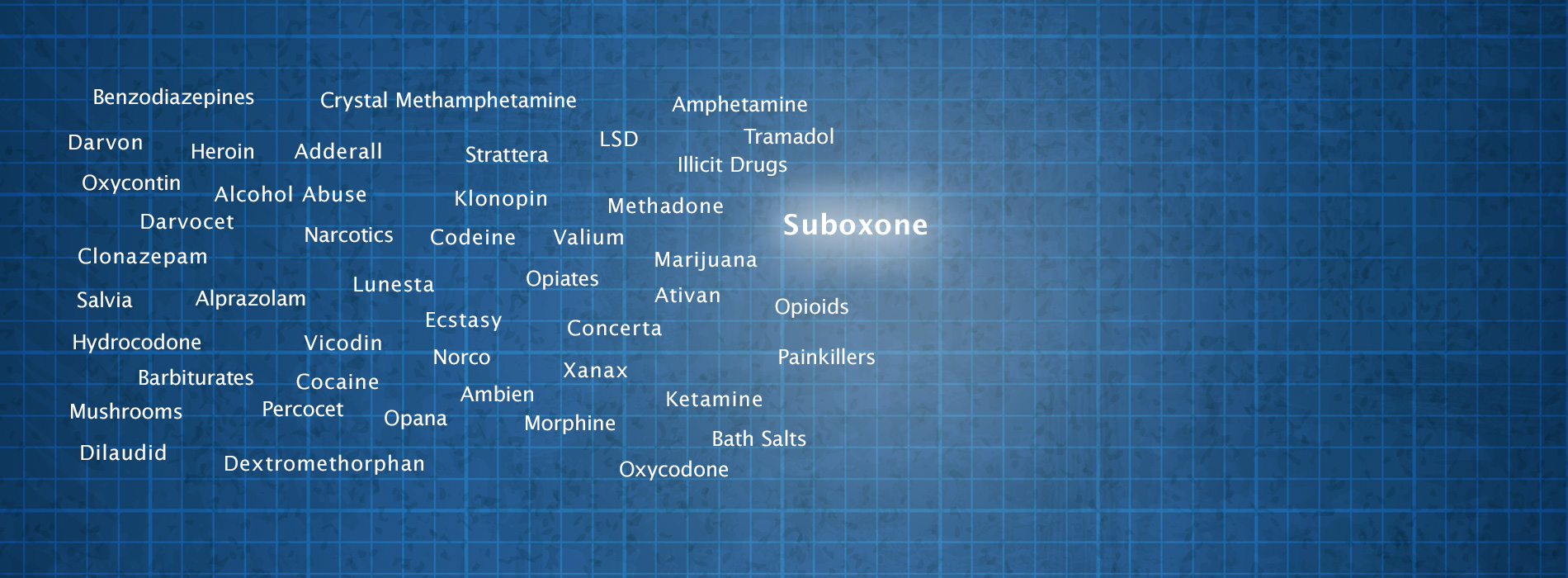Suboxone
Suboxone is a combination drug composed of buprenorphine and naloxone. This drug is prescribed for the treatment of opioid abuse, and it works to counteract when a person attempts to take an opioid while also on Suboxone. The buprenorphine is an opioid agonist, and it works to reduce the effects of withdrawals from drugs like morphine, oxycodone, and heroin. Naloxone prevents opioid overdose, and delivers a euphoric effect. This prevents an addict from using the opioid pain medicine while on Suboxone. This drug is available as a sublingual film or tablet.Suboxone received FDA approval in 2002 for the treatment of opioid addiction. The method of action is that it suppresses withdrawal symptoms and opioid cravings. The two ingredients work together to alleviate the opioid dependence. Abuse potential, while possible, is low with Suboxone. Treatment with Suboxone is a better option than going cold turkey to kick an opiate habit. One-year rates of relapse are estimated at around 50 percent. Also, this drug is the preferred medication for a maintenance program following an addiction to heroin or OxyContin.
Opioid Addiction Treatment
Suboxone is a drug prescribed in the treatment of opioid addiction. This drug produces measurable effects and is safe for use. In addition, the naloxone ensures that the opiate effects are blocked. There is a high affinity of opioid receptors with naloxone, so the drug will not work if injected. Suboxone when mixed with alcohol and benzodiazepines gives an intense high. There are many side effects to Suboxone. These include:
- Irritability
- Problems sleeping
- Constipation
- Jitteriness
Suboxone is a drug used in the treatment of opiate addiction. However, Suboxone is also abused. In a rehabilitation (rehab) center, the first stage of detoxification (detox) is where you are tapered off the drug slowly and given counseling and therapy. After this, you attend cognitive behavioral therapy to learn how to live without drugs. Once released into the world, you can join peer support groups and attend meetings to build social connections to help live a drug-free life.
Suboxone Abuse
Death from Suboxone use/abuse occurs from a car accident or an overdose, which is often related to an interaction with another drug. Other serious consequences of abuse of Suboxone are liver damage, kidney damage, central nervous system depression, respiratory distress, and coma. If you are a Suboxone user and tend to abuse drugs, discuss treatment options with your doctor. The warning signs of suboxone abuse include:
- Experiencing harsher withdrawal symptoms, such as depressed breathing, lack of coordination, and slowed heart rate.
- Becoming secretive with actions, such as who they are seeing and spending time with.
- Denial of the drug dependency or abuse.
The simplest way to avoid addiction to Suboxone is to avoid using this medication. However, if you are on this drug to recover from an opiate addiction, it is crucial to take the recommended dose and not more than prescribed. Increasing the daily dose improves the likelihood of overdose and possible death.

